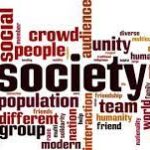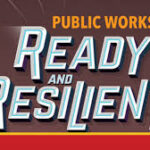If you are in a mental-health crisis we urge you to call 911 or go straight to your local hospital-emergency room.
Although The American Mental Health Foundation does not endorse any of the following resources, one or more may help you.
For emotional help related to the COVID-19 pandemic and its aftermath in 2024 (of which related emotional problems in its aftermath are called “the hidden pandemic”), in New York State click here, and there is CDC Services as well as these Helpline and Hotline phone numbers: 1-800-985-5990 and 1-844-863-9314 (New York State Emotional Support Hotline). The Mayo Clinic provides recommendations for maintaining emotional health, which you can access by clicking here. The Domestic Violence Helpline (especially for frontline workers) is 1-844-997-2121. New York State insurers were instructed by the governor, for the duration of the pandemic, to waive copays with respect to mental-health services and frontline workers. Frontline workers also can text NYFRONTLINE to 741741.
– Troubling evidence is reported of rare connections, cognitive and emotional, following COVID-19.
– COVID-19 vaccines’ policies: with respect to the U.S. allocation, dated November 2020, find the CDC Advisory Committee on Immunization Practices (ACIP), which includes findings and recommendations based on income disparities, ethnicity, age, as well as regarding individuals with intellectual and developmental disabilities (IDD / I/DD).
To find general help through government offices in your county click here.
– Suicide: National Suicide Prevention Lifeline and 988 or online-chat here. Another respected help-resource is Speaking of Suicide: click here.
For general-support groups click here.
For veterans, contact Veterans Crisis Line, also 800.273.8255 (TALK): see above.
Especially for young people, although (to repeat) AMHF does not endorse any action in an emotional crisis beyond speaking with a trusted and responsible adult, your doctor, or dialing 911, Crisis Text Line.
(For younger individuals seeking to get involved in the social dimensions of individuals’ emotional distress, DoSomething may be a guide and resource. For more on stress and young people, click here.)
For issues involving cyberbullying, click here.
For help related to eating disorders click here.
For many general issues relating to mental health, there is HealthFinder.
For substance abuse, there is Addiction Resource. For elders, click here. Also see Protection and Advocacy for Individuals with Mental Illness (PAIMI): or 877.726.4727.
For gambling and other addictions, in New York State, there is HOPENY: 1.877.8.HOPENY (467369).
Click here and here for issues involving the autism spectrum.
In New York City: Thrive NYC. Can also call: 888-NYCWell (888.692.9355); text “WELL” to 65173; English 888.692.9355; Spanish 888.692.9355, press 3; Mandarin or Cantonese: same “888” number and press 4.
Some information on Seasonal Affective Disorder (SAD): click here.
For elders experiencing social-isolation click here and/or call 1.800.677.1116.
Loss of memory, Severe or Not or other signs of demented behavior in a middle-aged or, particularly, an elder? See this link to the National Institute of Health/NIA. In addition, the Alzheimer’s Association has a Web site and phone number plus this link to contact political representatives; and there is the Alzheimer’s Foundation of America.
Special-needs and elders’ legal services click here.
For information on codependency click here.
Looking for a therapist? Psychology Today has a reliable way to search. Click here.











 Host Companion
Host Companion